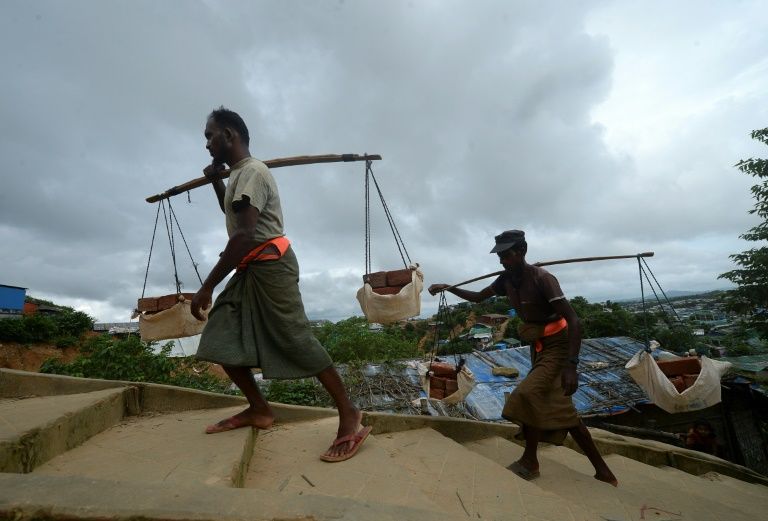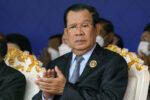Coronavirus keeps Rohingya indoors on ‘genocide’ anniversary
Kutupalong (Bangladesh) (AFP) – Almost a million Rohingya refugees stuck in Bangladesh mark three years since escaping from Myanmar on Tuesday, with coronavirus forcing them to hold a day-long “silent protest” inside their flimsy, leaky huts.
An August 2017 military operation — that has triggered genocide charges at the UN’s top court — drove 750,000 Rohingya out of Myanmar’s Rakhine state into neighbouring Bangladesh, to join 200,000 who fled earlier.
Three years later and with no work or decent education for their children, there is little prospect of a return to the country, where members of the mostly Muslim minority have long been treated as inferior intruders.
Myanmar’s military “killed more than 10,000 of our people. They carried out mass murders and rapes and drove our people from their home”, Mohib Ullah, a Rohingya leader in the camps, told AFP.
For the second anniversary last year, Ullah led a rally of about 200,000 protesters at Kutupalong, the largest of the network of camps in southeast Bangladesh, where 600,000 people live in cramped and unsanitary conditions.
But the Bangladeshi authorities, increasingly impatient with the Rohingya and who a year ago cut internet access in the camps, have banned gatherings because of the coronavirus pandemic.
The sprawling camps have been cut off from the rest of Bangladesh, with the military erecting barbed-wire fences around the perimeters. Inside, movement has been restricted.
Fears the deadly virus could spread like wildfire — because physical distancing is almost impossible — have not been borne out, with just 84 infections confirmed and six deaths.
The Rohingya will mark “Genocide Remembrance Day” with silence and prayers in their rickety homes all day, Ullah said.
“There will be no rallies, no work, no prayers at mosques, no NGO or aid activities, no schools, no madrasas and no food distribution,” he added.
– ‘Apartheid’ –
Bangladesh has signed an agreement with Myanmar to return the refugees. But the Rohingya refuse to go without guarantees for their safety and proper rights.
About 600,000 Rohingya remain in Myanmar, but most are not regarded as citizens, living in what Amnesty International describes as “apartheid” conditions.
The Rohingya are not convinced of the “sincerity of the Myanmar authorities”, Bangladesh foreign secretary Masud bin Momen said.
Khin Maung, a 25-year-old Rohingya activist who lost 10 relatives in the horrors of 2017, said the mood in the camps was very depressed.
“We want justice for the murders. We also want to go back home. But I don’t see any immediate hopes. It may take years,” Maung, who leads a Rohingya youth group, said.
He said the desperation had led hundreds to flee the camps this year on rickety boats often arranged by unscrupulous trafficking gangs.
At least 24 refugees are believed to have drowned off Malaysia last month in the latest in a string of tragedies. The lone survivor managed to swim to shore.
“Myanmar needs to accept an international solution that provides for the safe, voluntary return of Rohingya refugees, while an understandably stretched Bangladesh should not make conditions inhospitable for refugees who have nowhere to go,” said Brad Adams from Human Rights Watch.
Disclaimer: Validity of the above story is for 7 Days from original date of publishing. Source: AFP.


